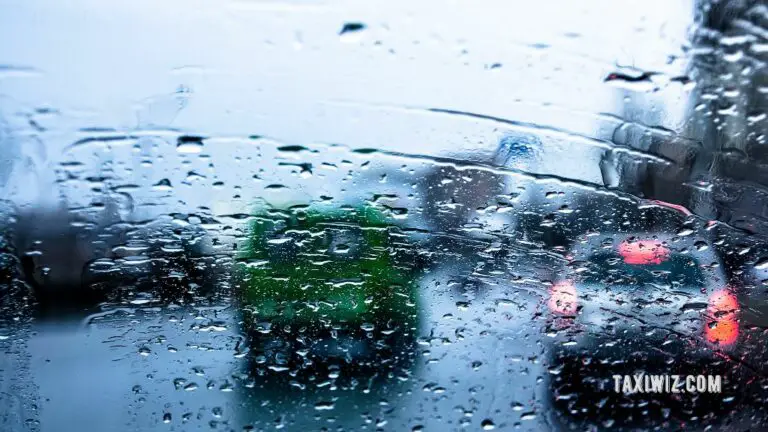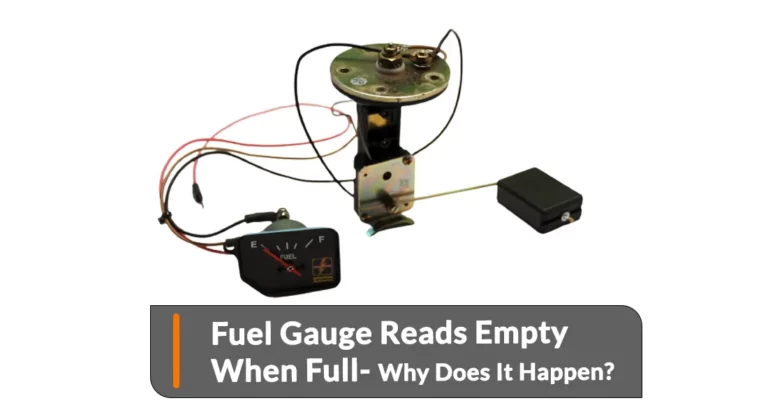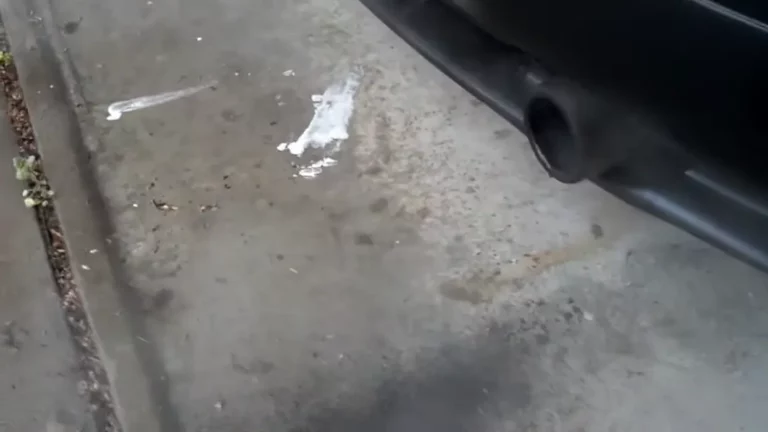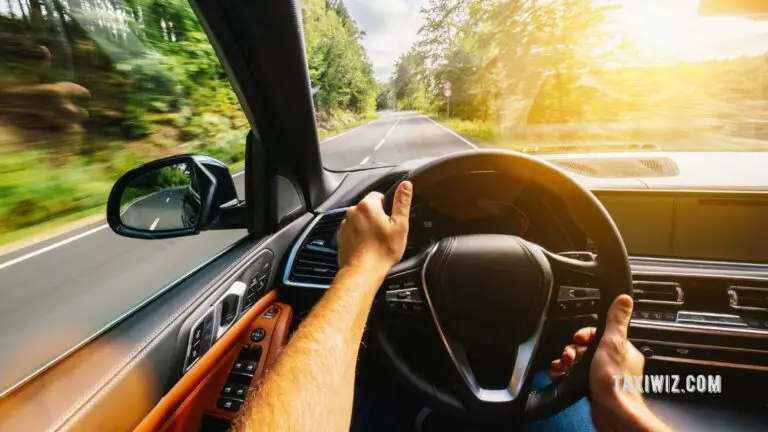Car Water Pump Bearing Noise [9 Fixes Explained]
If you can hear water pump-bearing noise when you turn on your vehicle, then you need to address the issue promptly.
A faulty water pump bearing will only lead to further damage to the cooling system and the engine. To avoid these issues, you should:
- Identify the source of the noise
- Take the necessary steps to fix the issue
- Do a complete check-up
- Seek professional assistance (if necessary)
Troubleshooting Water Pump Bearing Noise problems
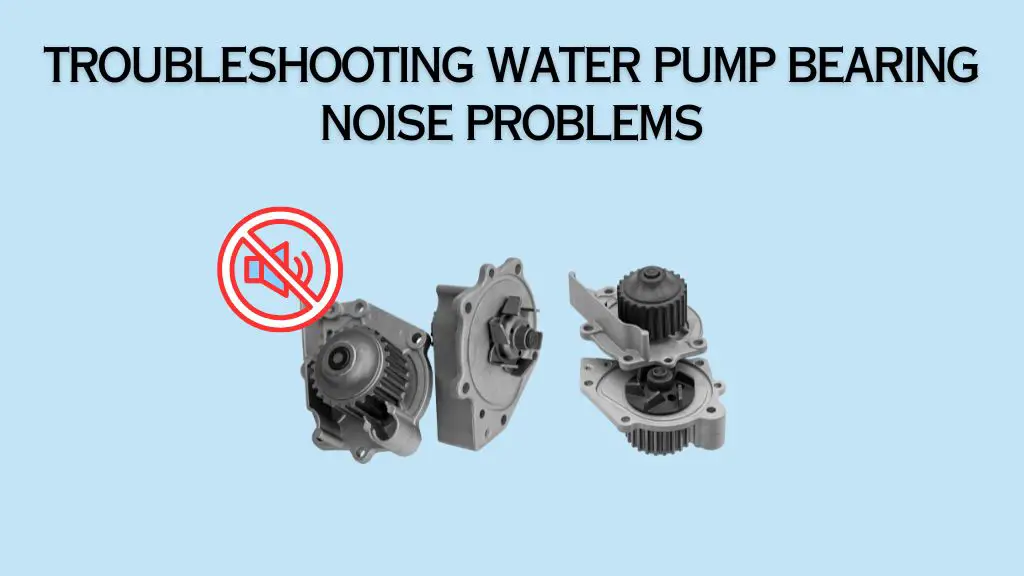
As the water pump in a vehicle circulates coolant throughout the engine and consists of several components and any fault or damage to them can also be the cause.
Here are some of the most common reasons why water pump make bearing noise.
1. Damaged or defective bearing
When you hear the water pump bearing noise, the first thing that you should consider is troubles with the bearing.
A damaged or defective bearing will surely make those irritating sounds. In some cases, the water pump bearing can be of poor quality from the start.
It is also possible that there is some sort of solid small particle stuck around the bearing and that is causing the noise.
That being said, it is quite rare to face something like this.
How to Fix?
If the water pump bearing is defective, the best course of action is to replace the water pump assembly completely.
You can opt for fixes, but most of the time, they are not very effective and may cost you a lot.
Read also: Reasons for the Fan Belt Noise When Accelerating
2. Not Enough Lubrication
Insufficient lubrication will often lead to increased friction and wear on the bearing, which will result in noise.
There are multiple reasons why this can happen. Maybe your vehicle lacked the proper lubrication in the first place.
Sometimes if the coolant becomes contaminated then the lubricants can dry up. The same can happen if the water pump is not properly maintained.
Leaks are also a probable cause for insufficient lubrication issues.
How to Fix?
First, ensure the coolant used on your car is the recommended type. If you are going to replace, then replace it at the manufacturer-recommended intervals.
Next, check if proper coolant circulation is being maintained and address if there are any blockages or restrictions in the cooling system.
3. Contaminated Coolant
Coolant contamination is quite common, especially in cars that haven’t been maintained properly.
If the coolant used in the engine contains impurities or particles, it can cause damage to the bearing over time.
These contaminants will then lead to increased friction and accelerated wear on the bearings.
This will eventually lead to the bearing making annoying noise. Not using the recommended coolant for your vehicle model may also cause the bearing to take damage.
How to Fix?
First, flush the cooling system out and replace the coolant with a fresh, high-quality coolant.
Look for leaks, or if the previous coolant was suffering from heavy contamination, then you can add an extra filter for protection.
4. Suffering from Old Age
As a vehicle ages and accumulates mileage, the internal components, especially the water pump bearing, can deteriorate.
When this happens, the bearing will lose its smooth operation and will start to generate noise when it starts working.
How to Fix?
If the water pump bearing is worn due to age or mileage, the best solution is to replace the entire water pump assembly with a new one.
We recommend taking the help of a mechanic if you plan on replacing the bearing.
5. Engine Overheating
When the components are under continuous exposure to high temperatures, such as due to engine overheating, it can accelerate wear on the water pump bearing.
Not only that but the excess heat can degrade the effectiveness of the lubricating properties of the coolant.
When that happens the friction and wear on the bearing will increase significantly.
How to Fix?
Figure out the root cause of the overheating issue, such as a malfunctioning thermostat, radiator, or cooling fan. If the components are at fault then you may have to fix or replace them.
Next, ensure proper coolant flow and circulation. If you find any restrictions or blockages then you will have to remove them.
6. Seal Failure
The water pump comes with seals that help prevent coolant leaks. If these seals fail, then the coolant will start to enter the bearing assembly.
This will eventually be leading to contamination and accelerated wear. And like the other issues, where there is wear there will be bearing noise.
How to Fix?
A seal failure is a major issue that has no other fixes but a complete replacement of the water pump.
7. Incorrect Installation
If you have recently changed your water pump or removed it and reinstalled it for some reason then improper installation might be the reason.
As this will create misalignment or excessive tension on the bearing, leading to premature wear and noise.
How to Fix?
Just follow the manufacturer’s instructions and use proper installation techniques when it comes to installing significant components like these.
Read also: Why a Car Groaning Noise When Turning At Low Speed?
8. Belt Related Issues
If the belt driving the water pump is too loose or too tight, it can put additional stress on the bearing assembly.
Excessive tension can cause the bearing to wear out faster and produce noise.
A misaligned belt can cause the water pump pulley to run off-center, leading to increased stress on the bearing.
This misalignment can result from a damaged or worn belt tensioner or other issues with the belt drive system.
How to Fix?
Try to adjust the belt tension according to the manufacturer’s specifications. If you are having trouble, you may seek support from a professional.
Also inspect the belt for wear, damage, or misalignment. Depending on the damage you may have to repair or replace the belt completely.
9. Corrosion or Rust
Overexposure to moisture or if the vehicle is frequently exposed to water may lead to corrosion or rust on the water pump bearing.
Due to this corrosion, the bearing becomes rough and worn out and that may lead to noise.
How to Fix?
If the water pump bearing is affected by corrosion or rust, the best solution is to replace the water pump assembly with a new one.
Why You Should Fix the Water-Bearing Noise?
A faulty water pump bearing can lead to more severe problems if left unattended.
Here are some of the reasons why you should address the water pump bearing noise and resolve it as soon as possible:
- Preventing Further Damage
This includes coolant leaks, overheating of the engine, and potential engine damage.
By addressing the issue promptly, you can prevent costly repairs or even the need for an engine replacement.
- Maintaining Engine Performance
The water pump plays a critical role in the cooling system, ensuring that the engine operates at the optimal temperature.
If the water pump is not functioning properly due to a noisy bearing, it can result in inefficient cooling that can compromise engine performance and the vehicle’s longevity.
Fixing the issue helps maintain the engine’s performance and efficiency.
- Avoiding Breakdowns & Roadside Emergencies
A water pump failure can leave you stranded on the side of the road, causing inconvenience and potentially dangerous situations.
As there are no other signs apart from the noise, you may think that it is good to go outside for a drive only to be stranded on the road.
Therefore, by addressing water pump bearing noise, you will reduce the likelihood of unexpected breakdowns of your vehicle.
- Preserving & Prolonging Your Vehicle
A well-functioning cooling system is crucial for the longevity of your vehicle.
By maintaining the water pump in good condition, you enhance the lifespan of your car and also reduce the chances of unexpected mechanical failures.
- Increasing Overall Safety
Disregarding the signs of water pump bearing will eventually lead to engine overheating. This can have safety implications.
It can lead to engine damage, loss of power, and potentially hazardous situations while driving.
Resolving water pump issues helps ensure the safety of these situations. That’s why it is a must if you want to keep your car safe and in optimal condition.
FAQs
Can I drive my vehicle with a noisy water pump bearing?
Yes, but it’s not recommended to drive with a noisy water pump bearing as it can lead to further damage to the cooling system and cause engine overheating.
How can I differentiate between water pump bearing noise and other engine noises?
Water pump bearing noise often has a distinct grinding or squealing sound that is typically audible from the front of the engine.
Can I repair a noisy water pump bearing on its own, or should I replace the entire water pump assembly?
Generally, a noisy water pump bearing cannot be repaired separately. You need to replace the entire water pump to get rid of this issue.
What is the typical lifespan of a water pump bearing?
On average, a water pump bearing may last between 60,000 to 100,000 miles (96,000 to 160,000 kilometers).
Conclusion
Addressing the water pump bearing noise and related issues is essential for maintaining the proper functioning of your vehicle’s cooling system, preserving engine performance, and ensuring your safety on the road.
It is a proactive step towards maintaining the overall reliability and longevity of your vehicle and is something that you shouldn’t ignore.
So, make sure to take the proper steps, if you suspect that your water pump bearing has started to make noise when you are driving.

